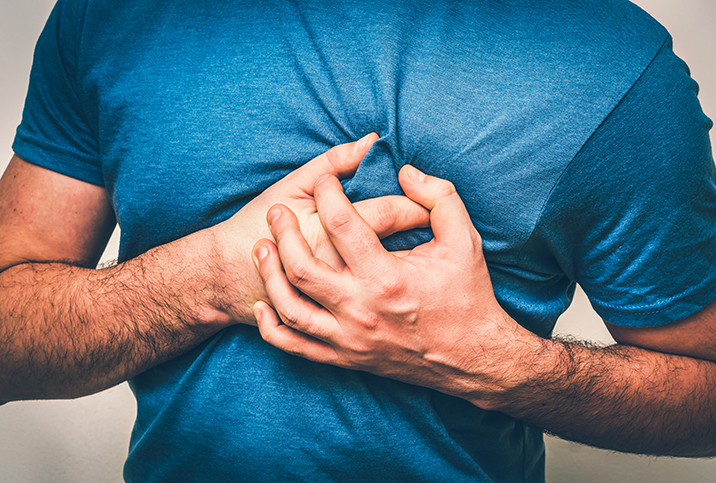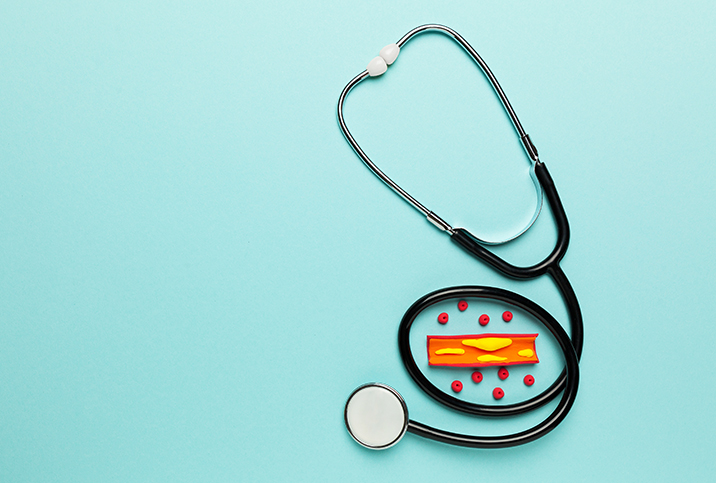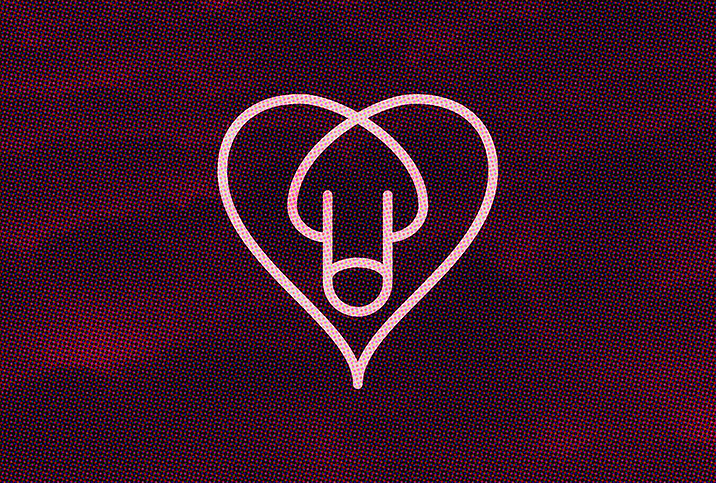Treatment of Heart Conditions and ED

One person dies every 36 seconds from heart disease in the United States. It is the leading cause of death and costs the United States about $219 billion each year in health care and lost productivity. Heart disease refers to several conditions, the most common being coronary artery disease (CAD), high blood pressure, cardiac arrest and congestive heart failure.
There is a strong connection between heart disease and erectile dysfunction (ED), the inability to get and keep an erection firm enough for sex, which can affect as many as 30 million men across the country.
Sexual function can decline as men age and develop other chronic health conditions. In some cases, ED does not present alone. Men may also experience premature ejaculation, low sex drive or infertility along with erectile dysfunction.
Overview of heart health and ED
Studies indicate that men with ED have a higher risk of also having heart disease. Some experts suggest that ED can function as a canary in a coal mine, and asking men about their sexual function may help to identify if they are at higher risk of coronary heart disease.
The smooth muscles inside the penis and the arteries that supply erectile tissue with blood play essential roles in attaining a firm erection. When the penis is flaccid, these muscles allow only a small amount of blood to the cells. With sexual stimulation, the smooth muscles relax, which allows dilation of the blood vessels to increase blood flow into the penis.
Sinuses trap the incoming blood, and venous outflow slows. Multiple other physiological processes occur to raise the penis from flaccid to a full erection and then rigid erection. Each of these processes depends on blood flow.
Men with poor heart health often also have some level of systemic vascular disease that can affect blood flow to the penis, and poor blood flow to the penis raises the risk of erectile dysfunction.
When to see a doctor for a diagnosis
It is not uncommon to occasionally be unable to achieve an erection sufficient for sexual function. Stress, anxiety, fatigue and other conditions can affect the ability to become erect. This is not erectile dysfunction. Instead, erectile dysfunction is an ongoing issue that happens consistently. Symptoms include trouble getting an erection or keeping an erection long enough to have sex.
It is important to speak with your doctor even if you are embarrassed. Remember that having a healthy sex life can improve its overall quality and that sexual dysfunction is common. ED may be triggered by other medical conditions, such as diabetes, high blood pressure, heart disease or pituitary tumors. Your erectile dysfunction symptoms may also be the first symptoms of these conditions.
When detected early, erectile dysfunction and the underlying medical conditions that accompany it can be treated through a variety of options. In other words, the earlier you speak with your doctor, the greater the chances of a satisfactory resolution.
Your doctor will take a detailed medical and sexual history, as well as perform a physical examination. They will ask questions about how often you have difficulty maintaining an erection during sexual intercourse, how often you find sex satisfying and whether you wake up in the morning with an erection.
There is an array of laboratory tests your doctor may perform to help rule out other conditions. Based on the results, you and your doctor will discuss your options.
Medical treatment for ED
Your physician will begin treatment by evaluating the medications you are taking and possibly suggesting a change in the type or dosage to reduce ED symptoms while managing your health conditions. Your doctor will also evaluate your testosterone levels, which affect your ability to get and sustain an erection.
Most medications that help with ED are phosphodiesterase type 5 (PDE5) inhibitors, such as sildenafil, vardenafil, tadalafil and avanafil (better known as Viagra, Levitra, Cialis and Stendra). PDE5 is an enzyme that affects blood flow, and PDE5 inhibitors work by blocking the enzyme, which relaxes the blood vessel and increases the blood supply. However, there must be sexual stimulation to achieve an erection.
Some men experience stronger erections using alprostadil, a medication that is injected directly into the penis and triggers an automatic erection. Alprostadil is also available as a pellet you insert in the tip of the penis. An erection begins within five to 20 minutes and can last from 30 to 60 minutes.
Medication is not always the answer for erectile dysfunction. ED meds can be contraindicated if you have kidney disease, liver disease, very high or low blood pressure or if you take nitrate drugs (used to treat or prevent heart conditions such as angina). Side effects of oral medications are usually mild but can include back pain, headaches, vision problems and indigestion. Many men find these side effects are worth it, but discuss nonmedical alternatives with your doctor if you are concerned.
Surgical treatment for ED
Nonsurgical treatment options are usually the first choice for erectile dysfunction. In some cases, your doctor may recommend an external or surgically implanted penile device. Such a solution is usually reserved for men with severe ED that results from physical trauma, a medical condition or past pelvic surgery and when they have not responded to medications or other treatments.
Before considering a surgically implanted device, consider an external wearable device. Vacuum devices use a vacuum to increase blood flow to the penis and trigger an erection. You then slip an elastic band from the device around the base of your penis, which helps maintain the erection. The band can stay in place for up to 30 minutes. Another wearable apparatus is the medical-grade constriction device Eddie by Giddy®, which can effectively help men address the issue noninvasively. These devices—placed around the base of the penis to constrict blood flow during sex and help maintain an erection—are available without a prescription and come without the side effects of ED medications or the risks of injections or surgery.
Surgical intervention with an implantable device is often the last option recommended. There are some risks, as there are with any surgical procedure. There are two types of surgical penile devices: semi-rigid (malleable) and inflatable. Neither type changes sensation on the penis or affects your ability to have an orgasm or ejaculate. Your doctor will advise you to avoid sex for six weeks after surgical implantation to allow the incision to heal (though each case may be different).
The first type of implant is a malleable prosthesis. It creates permanent firmness, so it is more detectable through clothing. However, because the implant is malleable, or movable, you can manually bend your penis downward.
The second type of implant is an inflatable device, which comes in two- and three-piece configurations. The surgeon implants a pump on one side of your scrotum and the device in your penis. When you press on the pump, it releases fluid into the chamber in your penis and creates an erection-like state. After sex, you can deflate the pump and your penis becomes flaccid again.
Another type of surgical treatment is microsurgical penile revascularization, which is similar to a heart bypass. It may relieve the symptoms of ED when there is a blockage in an artery to the penis. The doctor uses a donor artery from your leg to bypass the blockage and increase the blood supply. Men with atherosclerosis, or hardening of the arteries, are not candidates for this surgery, because the damage to the blood vessels in their case is permanent and extensive.
Alternative treatments for ED
Several natural alternative treatments are available to help erectile dysfunction. However, it is crucial to first see your healthcare provider for a physical examination. Before you dive in, keep in mind that few supplements of this nature have been approved by the Food and Drug Administration (FDA). That is to say, statements and claims made about the efficacy or possible health benefits of these unapproved supplements have neither been evaluated nor reviewed by the FDA for safety and effectiveness. Plus, they can interact negatively with your current medications or allergies, so consult your doctor.
Citrulline
This is an amino acid your body converts to L-arginine, a precursor to nitric oxide. In the body, nitric oxide helps relax blood vessels and increases the potential for a successful erection. One study suggested that men taking L-citrulline indicated greater satisfaction with erection hardness and an increased number of sexual encounters in a month. Side effects of citrulline are uncommon but include nausea, diarrhea and indigestion.
Panax ginseng
This herb is also called red ginseng or Korean ginseng. It is claimed to be effective for men with conditions associated with heart health. Panax ginseng has anti-inflammatory actions and may help improve blood flow. There are some side effects associated with Panax ginseng, including insomnia, headache and upset stomach.
Dehydroepiandrosterone (DHEA)
The adrenal gland sits on top of the kidneys and produces the hormone dehydroepiandrosterone (DHEA). In men, DHEA converts to testosterone. Results from the Massachusetts Male Aging Study suggested men with ED were more prone to having low levels of DHEA and, subsequently, testosterone. Another study showed men given a DHEA supplement had a higher likelihood of getting and sustaining an erection. DHEA can have some possible side effects including hair loss, acne, upset stomach and high blood pressure.
L-arginine
This amino acid is a precursor to nitric oxide. In one study, about 30 percent of men with ED experienced an improvement in their sexual function with L-arginine supplements. Another study found the combination of pycnogenol (a product derived from pine bark) and L-arginine restored sexual ability for 92 percent of men after three months. L-arginine is associated with side effects such as low blood pressure, abdominal pain, gout, worsening asthma and allergies.
Discuss any supplements with your doctor before use to ensure it's a safe option for treating your erectile dysfunction, especially since many supplements interact negatively with prescription medications.
Lifestyle choices for heart health and ED treatment
Several lifestyle choices can help improve your heart health and reduce the potential you'll experience erectile dysfunction. In response to the growing number of people with heart disease, the American Heart Association has developed Life's Simple 7, a list of approaches you can use to maintain heart health, which we're sharing here.
Stay active
Our cardiovascular system works best when we move around, and sitting for long periods has been linked to heart disease, among other serious health complications. If you work a desk job, it's helpful to get up and move around at least once every hour. In addition, regular exercise should be a part of your routine. Doctors recommend at least 150 minutes of moderate exercise a week. If you're new to exercise, discuss a plan with your physician and start slow.
Maintain a healthy weight
Excess weight has been associated with heart conditions as fatty material in your arteries can impact blood flow to your organs. Even a small amount of weight loss can have positive benefits for your overall health. A healthy weight varies by height and other factors, so discuss weight loss with your doctor to start a manageable plan for you.
Eat a heart-healthy diet
A heart-healthy diet includes fruits and vegetables, whole grains, low-fat proteins, low sodium foods, and low amounts of saturated and trans fats. Additionally, controlling portion size is a crucial part of a healthy diet. Some people find that planning meals in advance gives them control over their diet and, ultimately, their health.
Learn about cholesterol
High cholesterol can be detrimental to your heart health. One step in managing your cholesterol is educating yourself about what foods are beneficial to keeping your cholesterol in check. Monitoring your cholesterol levels is an important part of that, and regular physical checkups can keep you on track.
Keep your blood pressure under control
High blood pressure can be genetic and difficult to control, but certain lifestyle changes can help. Exercising regularly, eating healthy, limiting alcohol and keeping your stress levels down are all important parts of managing your blood pressure.
Maintain a healthy blood sugar level
Staying in healthy blood sugar ranges can improve your energy levels, mental health and physical health. Your blood sugar target depends on your age, health condition and other factors, so discuss a plan with your doctor to ensure you're on the right track.
Stop smoking
Tobacco use is linked to a myriad of health issues, including heart disease. Smoking causes your blood vessels to thicken and narrow, negatively impacting blood flow, and it increases plaque buildup and damages the cells lining your blood vessels. Tobacco can also make your blood more likely to clot.
Each of these modifiable risk factors helps to protect your blood vessels, your heart and your sexual health.
Prevention of heart disease and ED
A healthy lifestyle helps reduce your potential risk for heart disease and erectile dysfunction, and preventive strategies include those that increase nitric oxide, which is a driving force of blood to the genital area.
Exercise, nutrition, hydration and sleep are key components to preventing poor sexual health. The Centers for Disease Control and Prevention (CDC) recommends cardiovascular activity and muscle-strengthening activities to maintain optimal health.
Remember that no matter how much you exercise, you will not out-exercise a poor diet. Decide to avoid processed foods. Instead, fill your plate with whole foods. Your body requires the vitamins and minerals found in fruits and vegetables. Drink enough water to remain hydrated. You can judge hydration by the color of your urine: It should be a light straw color. Get at least eight hours of quality sleep at night.
If you practice these simple steps and stay in communication with your healthcare provider, you'll notice real changes in your heart and sexual health.


















